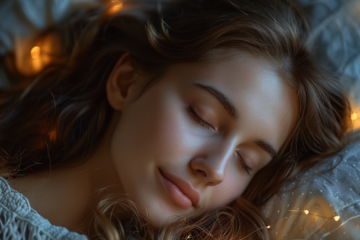Sleep is a vital aspect of our overall health and well-being. Yet, many of us struggle to fall asleep quickly and experience restful nights. This article explores the significance of sleep, common sleep problems, and three effective bedtime hacks to help you slip into sleep mode rapidly.
Introduction to the Importance of Sleep
Sleep plays a crucial role in maintaining our physical and mental health. It allows our bodies to rest, repair, and rejuvenate, enabling us to function optimally during waking hours. Adequate sleep is linked to improved cognitive function, mood regulation, and immune system function.
Understanding Sleep Deprivation
Sleep deprivation occurs when an individual fails to get enough sleep on a regular basis. This can lead to a range of negative consequences, including fatigue, irritability, difficulty concentrating, and increased risk of accidents.
Common Sleep Problems
Insomnia: Characterized by difficulty falling asleep or staying asleep, insomnia can be caused by stress, anxiety, or underlying medical conditions.
Restless Leg Syndrome (RLS) is a neurological disorder marked by an uncontrollable urge to move the legs, frequently accompanied by uncomfortable sensations.
Sleep Apnea: Sleep apnea is a sleep disorder characterized by pauses in breathing during sleep, leading to disrupted sleep and daytime fatigue.
The Significance of Establishing a Bedtime Routine
Establishing a consistent bedtime routine signals to your body that it’s time to wind down and prepare for sleep. This can help improve sleep quality and make it easier to fall asleep quickly.

Introduction to Bedtime Hacks
Bedtime hacks are simple strategies that can help you relax your mind and body, making it easier to transition into sleep mode.
Create a Calm Environment
Creating a calm and conducive sleep environment can significantly impact your ability to fall asleep quickly.
Dim the Lights
Dimming the lights signals to your body that it’s time to prepare for sleep. Avoid bright overhead lights and opt for softer, dimmer lighting in the evening.
Reduce Noise
Noise can disturb sleep and hinder relaxation. Use earplugs or white noise machines to block out unwanted sounds and create a peaceful environment.
Set Comfortable Temperature
Maintaining a comfortable room temperature can promote better sleep. Aim for a cool, but not cold, environment to optimize sleep quality.
Relaxation Techniques
Engaging in relaxation techniques can help quiet the mind and relax the body, making it easier to fall asleep.
Deep Breathing Exercises
Deep breathing exercises can assist in alleviating stress and fostering relaxation. Attempt inhaling deeply through your nose for a count of four, holding your breath for a count of four, and then exhaling slowly through your mouth for a count of six.
Progressive Muscle Relaxation
Progressive muscle relaxation entails tensing and subsequently releasing each muscle group in the body, beginning from the toes and progressing upwards to the head. This technique can help alleviate tension and promote relaxation.
Visualization
Visualization involves imagining a peaceful and calming scene, such as a serene beach or lush forest. Focusing on these positive images can help distract the mind from worries and promote relaxation.
Adopting Healthy Habits
Incorporating healthy habits into your daily routine can set the stage for better sleep.
Limit Caffeine and Screen Time
Avoid consuming caffeine and engaging in stimulating activities, such as watching TV or using electronic devices, close to bedtime. These can interfere with your body’s natural sleep-wake cycle.
Establish a Regular Sleep Schedule
Strive to go to bed and wake up at consistent times every day, including weekends. This helps regulate your body’s internal clock and promotes more consistent sleep patterns.
Avoid Heavy Meals Before Bed
Eating heavy or spicy meals before bedtime can cause discomfort and indigestion, making it harder to fall asleep. Opt for lighter, easily digestible snacks if you’re hungry before bed.
Conclusion
Incorporating these bedtime hacks into your nightly routine can help you relax your mind and body, making it easier to slip into sleep mode rapidly. By creating a calm environment, practicing relaxation techniques, and adopting healthy habits, you can improve your sleep quality and wake up feeling refreshed and rejuvenated.
FAQs
How long does it take for bedtime hacks to work?
The effectiveness of bedtime hacks can vary from person to person. Some individuals may experience immediate results, while others may need to practice these techniques consistently over time to see improvements in their sleep quality.
Can I combine multiple bedtime hacks for better results?
Yes, combining different bedtime hacks can enhance their effectiveness. For example, you can create a calming environment while practicing relaxation techniques to promote deeper relaxation and faster sleep onset.
Are there any side effects to using bedtime hacks?
Bedtime hacks such as deep breathing exercises and progressive muscle relaxation are generally safe and have no known side effects. However, individuals with certain medical conditions should consult with a healthcare professional before trying these techniques.
What should I do if bedtime hacks don’t work for me?
If bedtime hacks alone are not improving your sleep quality, consider consulting with a healthcare professional to rule out underlying sleep disorders or medical conditions that may be contributing to your sleep problems.
Can children benefit from bedtime hacks?
Yes, children can benefit from bedtime hacks as well. Creating a calming bedtime routine and practicing relaxation techniques can help children wind down and prepare for sleep, promoting better sleep quality and overall well-being.



